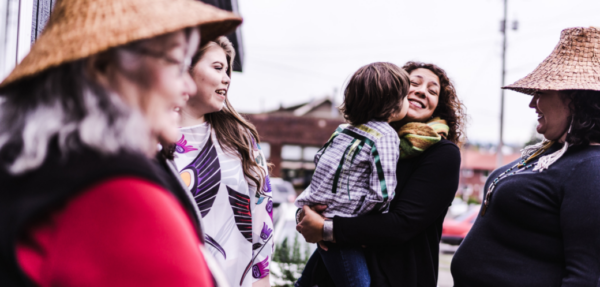
- Details
- By Native News Online Staff
Urban Indian Health Institute releases best practices to address problem
SEATTLE — American Indians and Alaska Natives are often misclassified upon entering the health system. Sometimes the data collector checks the Caucasian, Latino or “other” box without asking the patient.
Accurate data collection is imperative when measuring the true impact on Native population in health matters, especially during the current COVID-19 pandemic, according to experts on Indian Country health matters. Proper classification is important to track preponderance to diseases among the Native population and even morbidity rates.The problems with data collection have led to the invisibility of health conditions in the Native populations.
To help solve this problem, the Urban Indian Health Institute (UIHI) on Tuesday released a seven-page best practices for methods to collect, analyze, and present public health data on American Indian and Alaska Native populations.
The recommendations come amid growing acknowledgment that Native peoples with COVID-19 are being severely undercounted.
“We have already missed the opportunity to get an accurate count of COVID-19 cases in our Native communities during this current wave of the pandemic,” said Abigail Echo-Hawk, Director of UIHI. “We are releasing this today in the hopes that we can get a fuller picture of this virus, and other health data, moving forward.”
“Native peoples are a small population because of genocide and colonization,” said Echo-Hawk. “The elimination of our people from public health data is a further erasure of our experience.”
The best practices include recommendations for policymakers, public health officials, medical examiners, coroners, and funeral homes. One best practice is a policy that requires the collection of race and ethnicity data, as well as enforcement mechanisms for agencies that do not comply with this mandate. UIHI also says that, where racial information is collected, American Indian/Alaska Native should be included as a stand-alone category to eliminate the confusion associated with an “other” category of race in data collection.
UIHI says current standard data collection are omitting or misclassifying American Indian and Alaska Native populations, both urban and rural.
“We cannot have a complete picture of the impacts on Native people without accurate and complete data,” said Echo-Hawk. “Jurisdictions must act immediately to address these inequities. In the middle of a global pandemic, we have no time to waste.”
Link to UIHI’s Best Practices for American Indian and Alaska Native Data Collection.
More Stories Like This
Native News Weekly (August 25, 2024): D.C. BriefsUS Presidents in Their Own Words Concerning American Indians
Two Murdered on Colville Indian Reservation
NDAA passes House; Lumbee Fairness Act Advances
NFL, Vikings to Host Native All-American Game, Youth Flag Clinic
Help us defend tribal sovereignty.
At Native News Online, our mission is rooted in telling the stories that strengthen sovereignty and uplift Indigenous voices — not just at year’s end, but every single day.
Because of your generosity last year, we were able to keep our reporters on the ground in tribal communities, at national gatherings and in the halls of Congress — covering the issues that matter most to Indian Country: sovereignty, culture, education, health and economic opportunity.
That support sustained us through a tough year in 2025. Now, as we look to the year ahead, we need your help right now to ensure warrior journalism remains strong — reporting that defends tribal sovereignty, amplifies Native truth, and holds power accountable.
 The stakes couldn't be higher. Your support keeps Native voices heard, Native stories told and Native sovereignty defended.
The stakes couldn't be higher. Your support keeps Native voices heard, Native stories told and Native sovereignty defended.
Stand with Warrior Journalism today.
Levi Rickert (Potawatomi), Editor & Publisher

